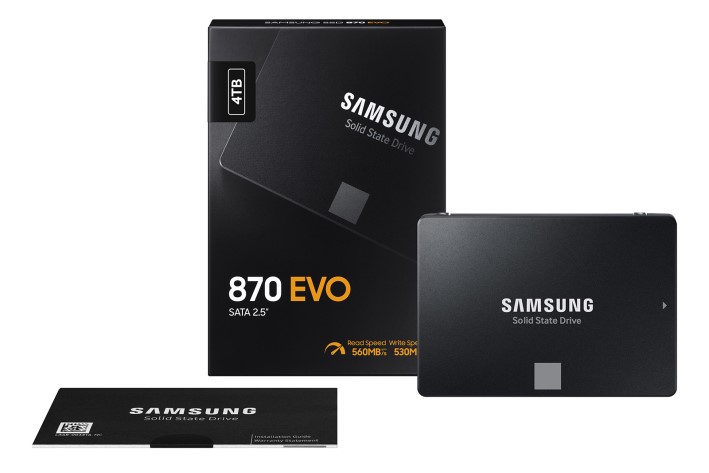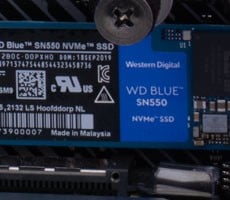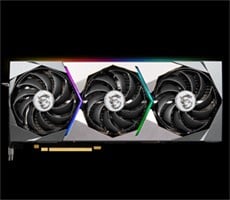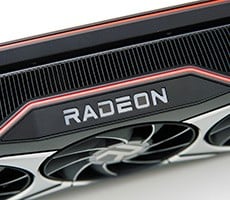Samsung SSD 870 EVO: More Benchmarks And Our Verdict
|
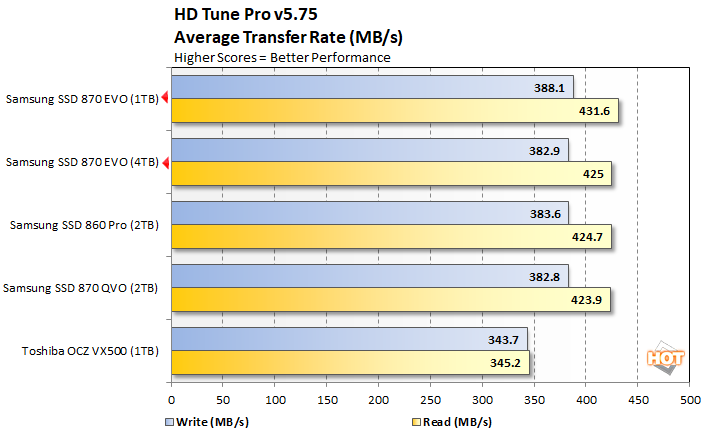
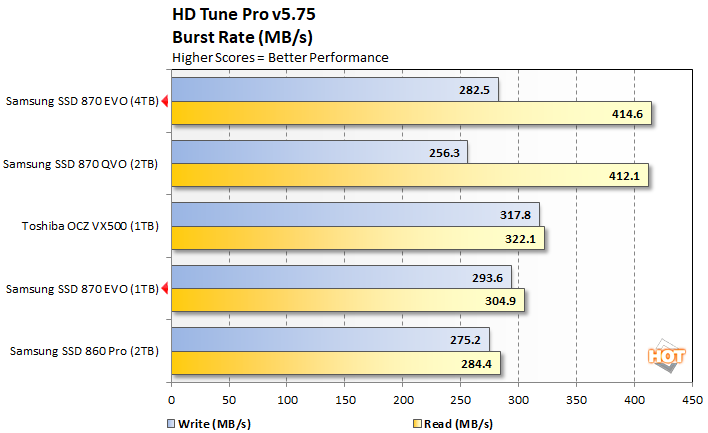
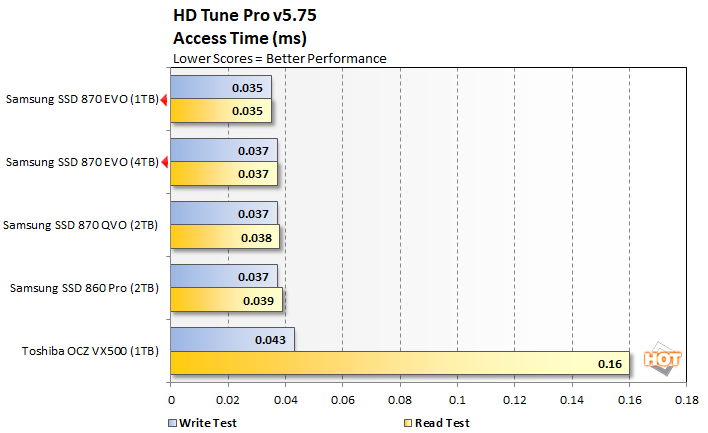
Burst rate performance was mixed for the Samsung SSD 870 EVO drives we tested, but sequential transfers and access times led the pack, albeit by relatively small margins.
CrystalDiskMark is a synthetic benchmark that tests both sequential and random small and mid-sized file transfers using incompressible data. It provides a quick look at best and worst case scenarios with regard to SSD performance, best case being larger sequential transfers and worse case being small, random transfers.
|
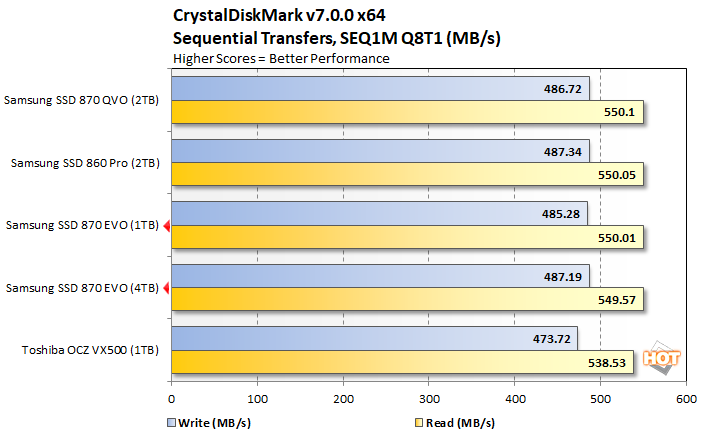
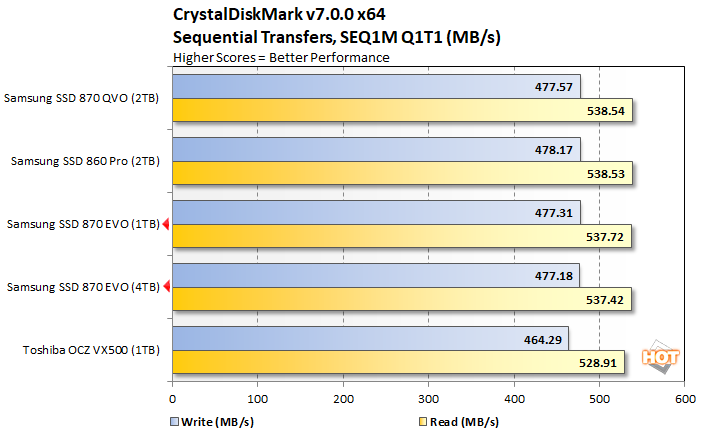
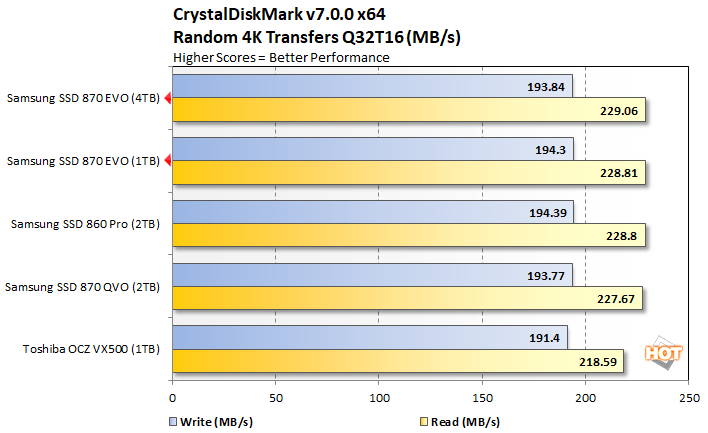
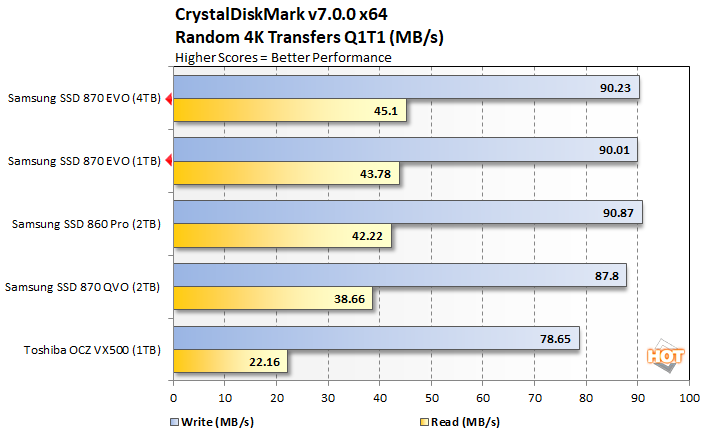
We like PCMark 10's new quick storage benchmark module for its real-world application measurement approach to testing. PCMark offers a trace-based measurement of system response times under various scripted workloads of traditional client / desktop system operation.
|
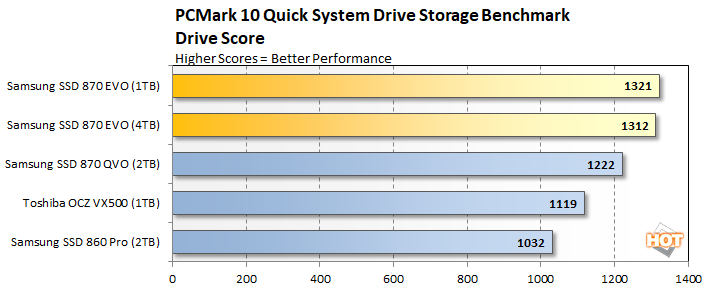
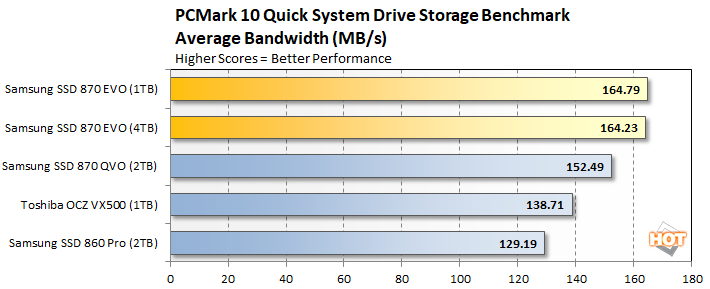
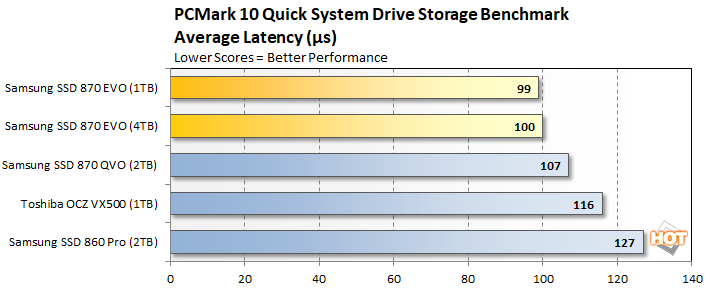
Samsung's new SSD 870 EVOs also topped the charts according to PCMark 10 as well. Their overall score, bandwidth rating, and access times were the best of the bunch by more significant margins this time around.
Samsung SSD 870 EVO Review Summary And Verdict
The Samsung SSD 870 EVO series of solid state drives will be available soon at select retailers and at Samsung.com. Prices for the drives are as follows:
(Update 1/20/21: Samsung reached-out and let us know pricing has was reduced from the MSRPs originally communicated.)
- 4TB (
$529.99$479.99) - 2TB (
$269.99$249.99) - 1TB (
$139.99$129.99) - 500GB (
$79.99$69.99) - 250GB (
$49.99$39.99)
If you're in need of a high-capacity, top-performing SATA SSD and want something from a well-respected brand with a long track record in the space, the Samsung SSD 870 EVO series should be on the top of your short list.

|
|

